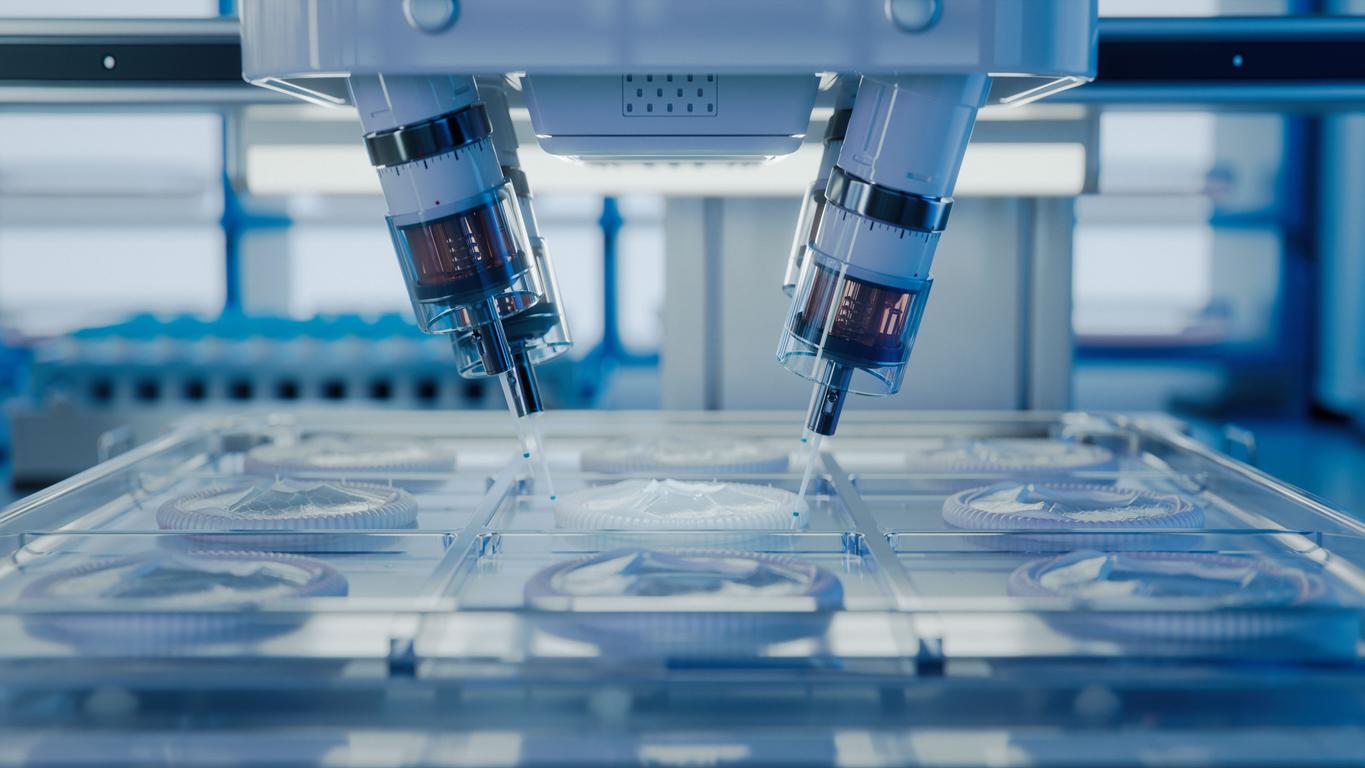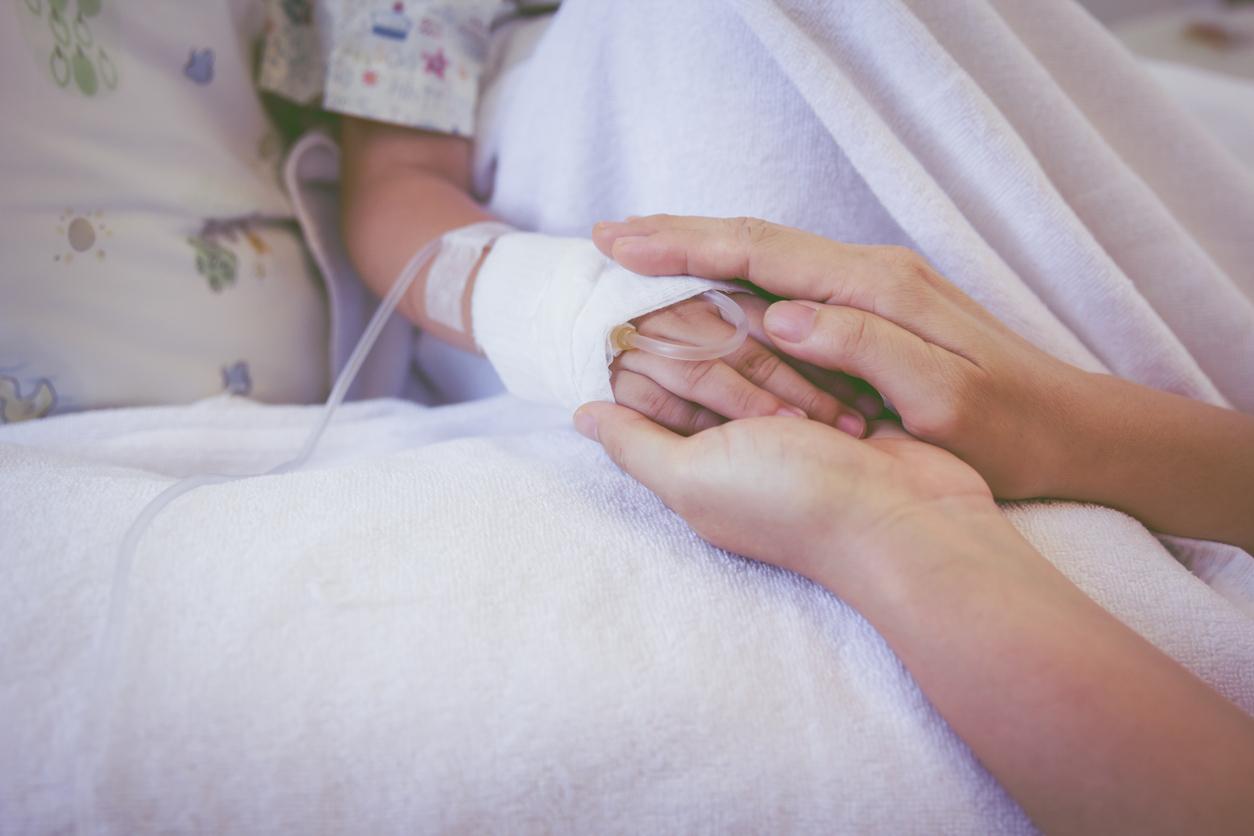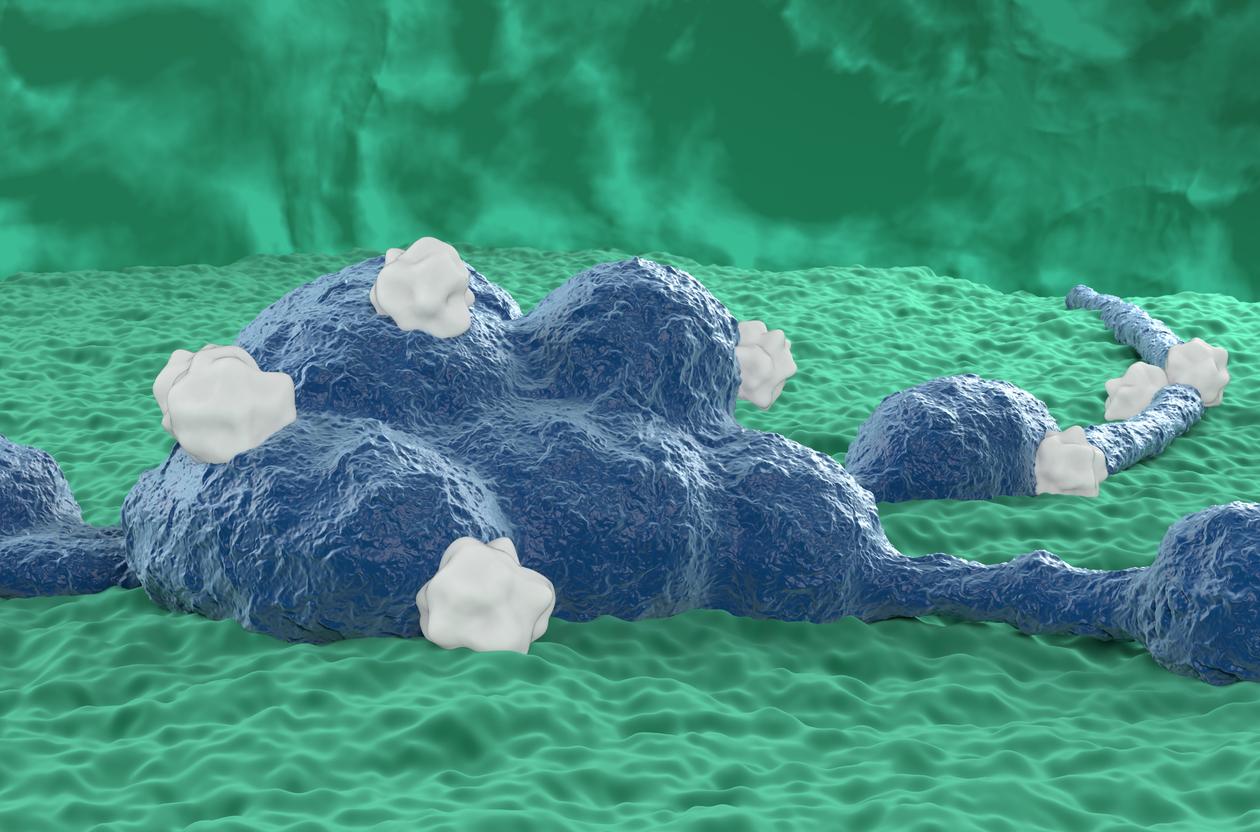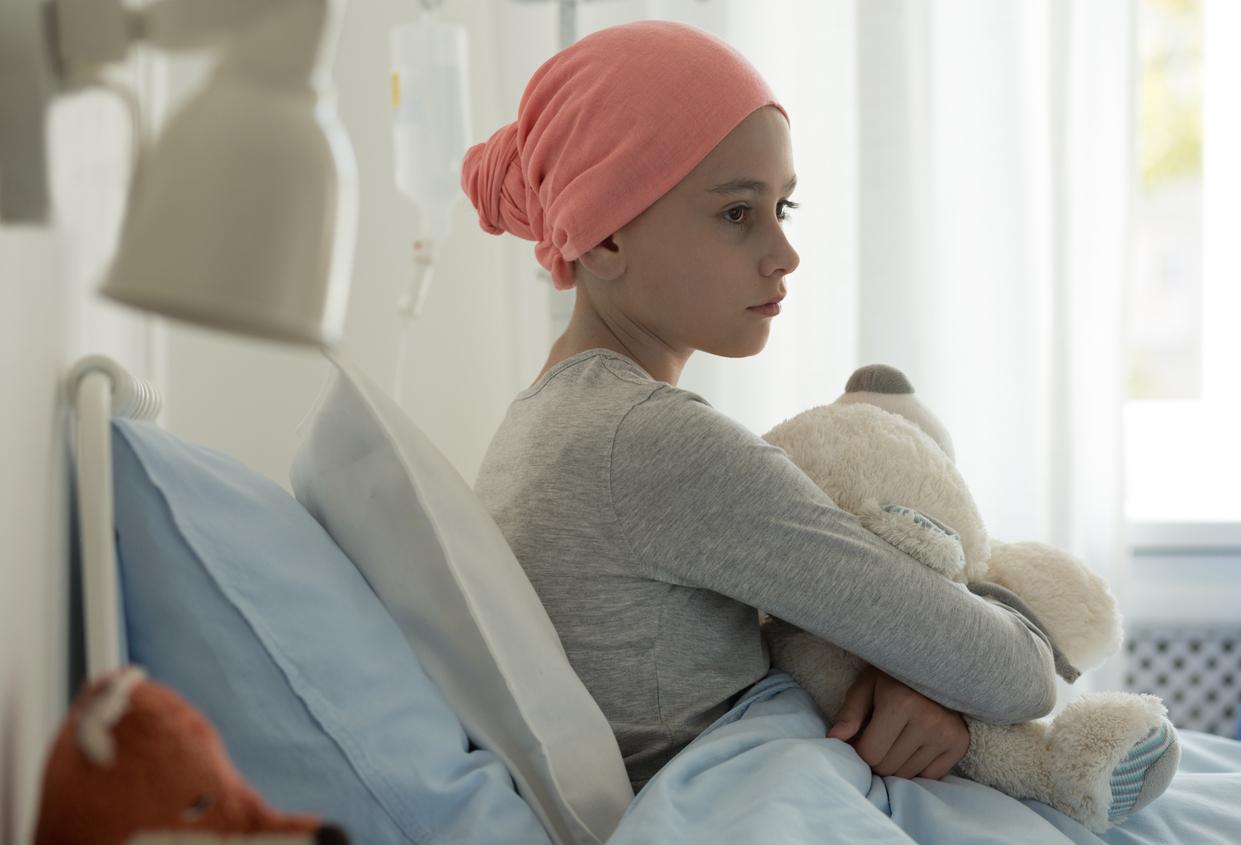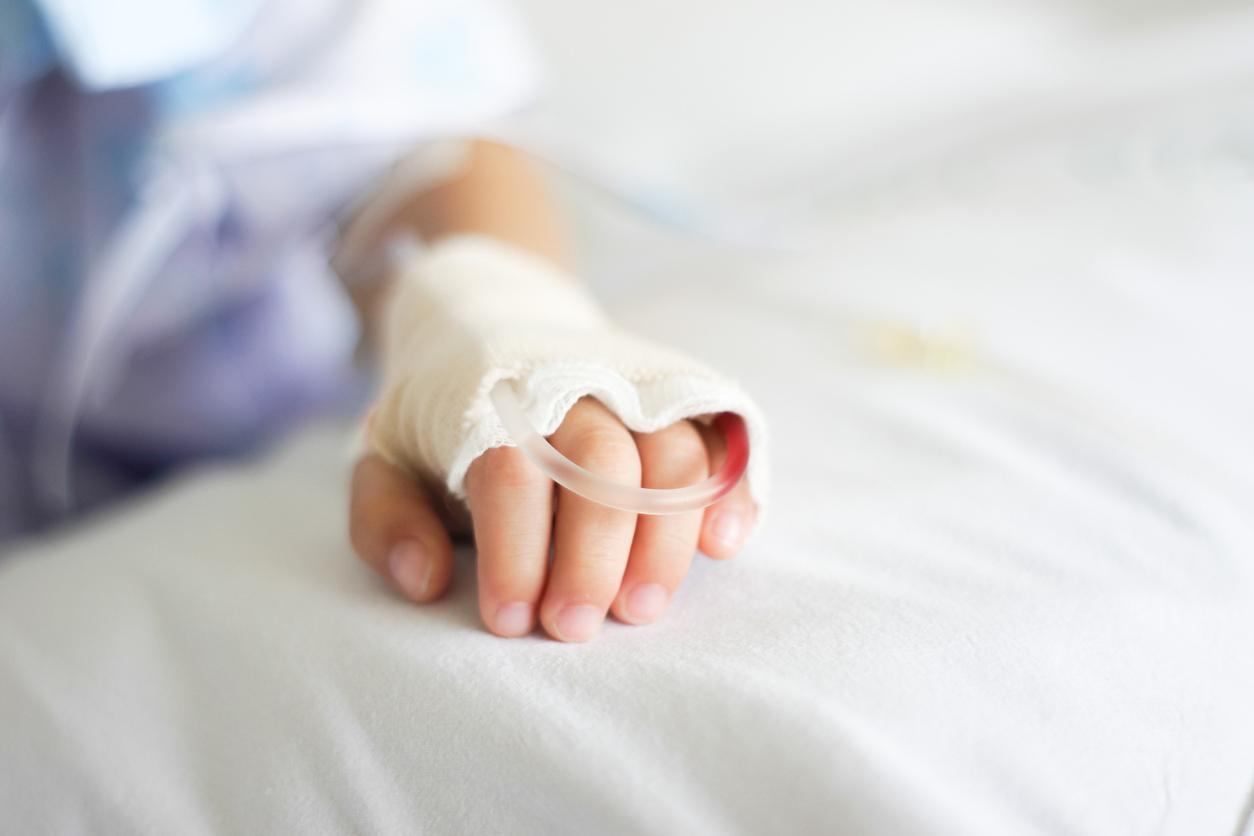Just when she thought her eight-month-old son was teething, a mother discovered he had a rare cancer.
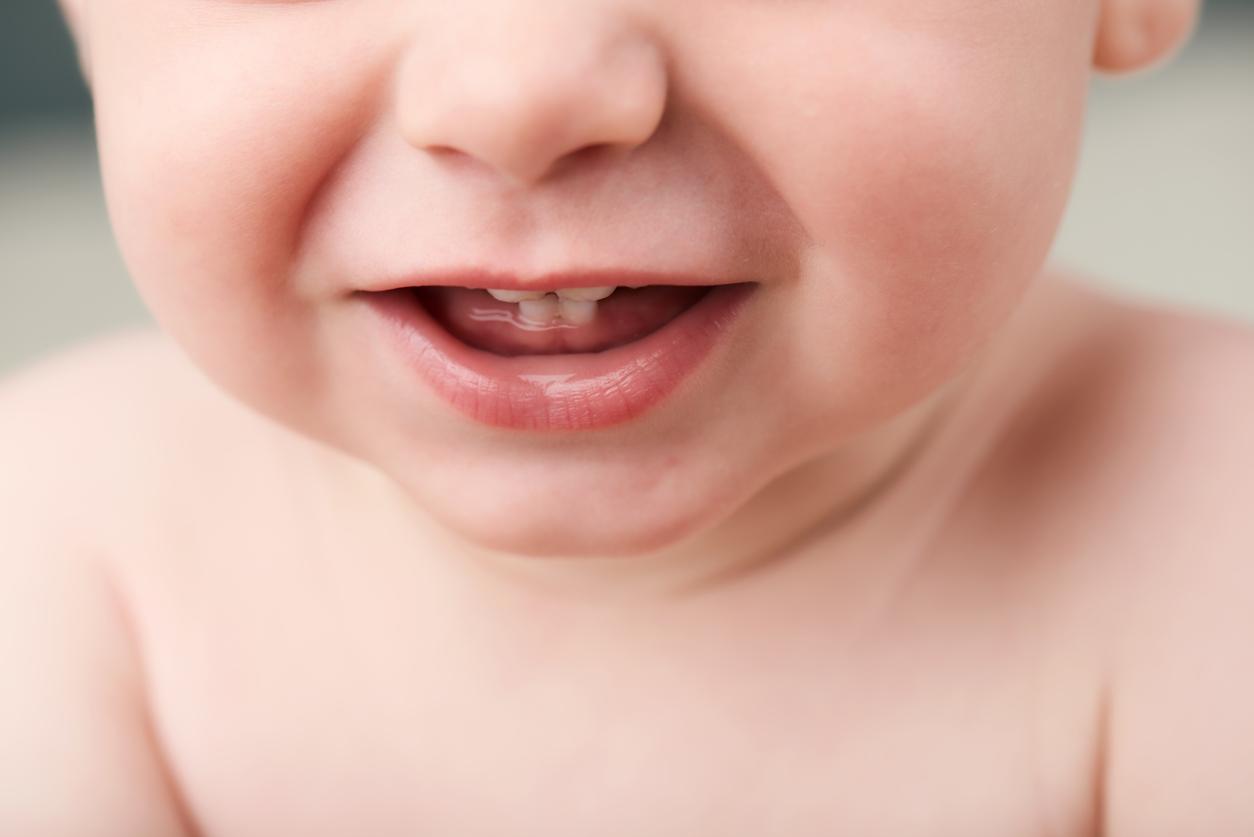
- Eight-month-old Aiden became particularly irritable and coughing during a family vacation in 2022. His parents thought his symptoms were related to teething.
- Tests revealed that he was in fact suffering from a rare blood cancer: acute lymphoblastic leukemia. If after numerous treatments, the little boy is in remission, his risk of recurrence is very high due to a genetic mutation.
- His parents want to raise awareness among the general public about pediatric cancers and the lack of research in this area.
While his family was vacationing in Pittsburgh in 2022, the little Aiden8 months old, was particularly irritated and difficult. His mom, Ashley Beauregard, thought his grumpy behavior was related to teething. But the diagnosis turned out to be darker: he had acute leukemia lymphoblastic (LAL)a cancer of the blood and bone marrow that mainly begins during childhood.
Acute leukemia lymphoblastic : “His white blood cell count was found to be so high“
The American who lives in Michigan, remembers in the pages of Sun : “Aiden suffered from a cough, was extremely difficult and was teething – we just assumed he had typical eight-month-old issues.”
But a few days after returning home, the thirty-year-old became more concerned when she noticed her son’s great pallor. “I called his pediatrician and we got an appointment for the next day”she explains. The tests carried out by the doctor were not reassuring.
“The tests showed that his hemoglobin level was extremely low and they told us to take him to the emergency room. There they did a complete blood test.”Ashley recalls. “His white blood cell count was so high that it was obvious he had leukemia, and we then stayed in the hospital for 36 days,” she specifies.
Finally, a precise diagnosis was made. This is acute leukemia. lymphoblastic. This cancer is caused by the uncontrolled multiplication of lymphoblasts. The latter invade the bone marrow, ce which prevents the production of normal blood cells. The French Society of Hematology specifies in its documentation : “There LAL is a rare disease since there are less than 300 new cases each year in France. The causes are currently unknown. Neither microbes nor the environment or life events are usually to blame. It is neither contagious nor transmissible and is not hereditary..
Faced with the doctors’ announcement, the little boy’s mother admitted in the press to having thought that “Life as we knew it was over. I felt absolute fear.”
Acute leukemia lymphoblastic : a mutation complicates the treatment
The case ofAiden proved particularly difficult because his leukemia lymphoblastic acute (LAL) had a genetic mutation making it even rarer. The doctors confirmed to the parents that the little one’s first symptoms – prolonged nausea, paleness and a difficult and irritable character – were warning signs of this disease.
To fight this cancer, the little boy received several treatments. “We spent 236 days in the hospital and countless days in the hospital trying to fight the cancer with protocols, but unfortunately, Aiden relapsed several times,” explains the mother. “He underwent immunotherapy with cells CAR-T which failed after 16 days”. The bone marrow transplant he had sufferedalso failed after two months.
“He has had countless blood transfusions, spinal taps, bone marrow biopsies, MRIs, CT scans, etc.And although he is currently in remission, we have been told it will not last”confides Ashley.
The little boy also faces another difficulty. He developed graft-versus-host disease. This occurs when the stem cells Healthy transplanted cells attack the host cells because they see them as foreign bodies. The mother ofAiden explain : “his whole body has a rash, but he has been on steroids and immunosuppressants for over a month now, and we are seeing improvement.” However, she recognizes that “THE childhood cancer, it’s our life now”.

Childhood cancer: more research and means
Aiden is currently in remission. However, his family was warned that a relapse was very likely due to the presence of the genetic mutation. If the parents have decided to take full advantage of every moment spent with their little boy, they also want to raise awareness about childhood cancer in order to improve the care offered to young patients.
Ashley explains “we need better and more treatment options”. She adds : “Most of the ones we have are outdated and aimed at adults. Childhood cancer research is seriously underfunded and there are many types”.









